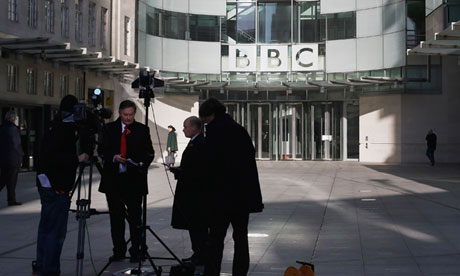- Analysis of the Culture Select Committee's largely scathing report on the BBC, which had many suggestions for reform of the BBC
- Details and analysis of media coverage of this, looking at how anti-BBC flak is formulated
- Specifically the issue of the BBC Trust: will it be scrapped in favour of a new regulator?
- Brief overview of some of the many other detailed posts on the Beeb
Wow - not a good day for Auntie Beeb; here's a flavour of what they face today, leading off from events yesterday; the Media Guardian's top 10 stories on the morning of 26th February, 2015:
The spectre of Sir Jimmy Saville raised once more, on of the low points in the BBC's entire history; a link made to tax avoidance, the political hot potato of this month given the furore over the HSBC tax avoidance revelations (and then the Telegraph ad revenue story); a clear growing consensus that the license fee must go (just not yet); and strong-worded condemnation of the BBC Trust, the current main regulator of the BBC. The Daily Mail will be loving this!
ANTI-BBC FLAK: THE MAIL'S GLEEFUL REPORT


